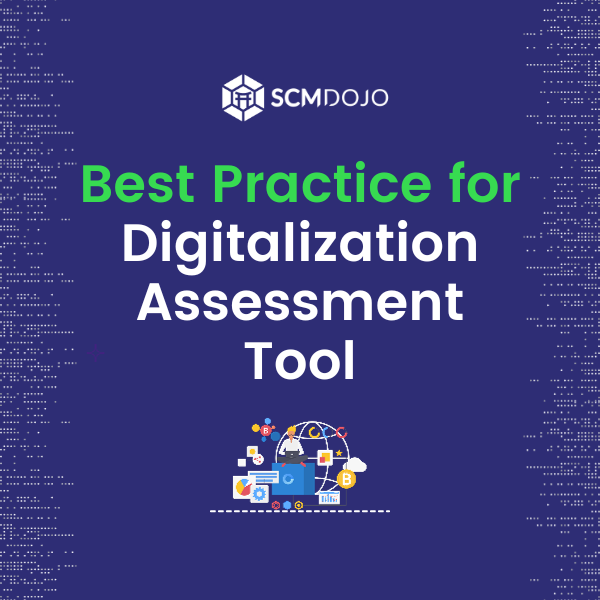The supply chain industry is vital to the global economy with its complex network of activities, people, organizations, information, and resources. As businesses continue to globalize and markets become increasingly interconnected, the demand for skilled supply chain professionals is rising. Understanding the pathway to success is crucial for students eyeing a career in this dynamic field. Here are six essential tips for students to enter and thrive in the supply chain industry.
1. Gain a Solid Educational Foundation
A solid educational background in supply chain management or a related field such as business, logistics, or operations management is crucial. Pursuing a degree in these areas will equip you with the fundamental knowledge of supply chain principles, such as procurement, inventory management, logistics, and operations strategy. Courses aim to provide students with theoretical knowledge and practical skills, preparing them for real-world challenges. Additionally, engaging in case studies, internships, and simulation projects can provide hands-on experience, making the theoretical knowledge gained in class come alive.
Amidst this rigorous academic journey, essay writing services can be a boon, offering assistance with assignments and projects. With the support of expert essay writers online, students can manage their workload more effectively, ensuring they can fully immerse themselves in both the theoretical and practical aspects of their studies. Thus, this harmonious blend of education, hands-on experience, and external support lays the groundwork for a flourishing career in the supply chain industry.
Visit SCMDOJO Academy to get professional Supply Chain Certifications from the experts all over the world!
2. Develop Technical and Analytical Skills
In today’s fast-paced world, mastering tech tools and platforms is necessary for anyone diving into the supply chain profession. Getting to grips with systems like ERP, TMS, and WMS puts you ahead and arms you with the tools to streamline operations. Plus, the knack for sifting through heaps of data, spotting trends, and developing solutions that keep things running sets the best apart. For students aiming to carve out a space in this field, doubling down on tech and analytical skills is non-negotiable. Here’s how you can amp up these skills:
- Dive into ERP Systems: Get hands-on experience with ERP software, understanding how it integrates all facets of an operation, from supply to sales.
- Master TMS Tools: Learn the ins and outs of transportation management systems to see how they optimize the shipping process, saving time and money.
- Get Familiar with WMS: Explore warehouse management systems to understand how they enhance inventory tracking and improve order fulfillment.
- Sharpen Your Data Analysis: Engage in courses or workshops focusing on data analytics, teaching you how to interpret complex datasets and apply this knowledge to real-world scenarios.
- Embrace Continuous Learning: The tech landscape is constantly changing, so make a habit of staying updated on the latest software and tools through webinars, online courses, and self-study.
Becoming well-versed in these areas not only boosts your resume but also prepares you to tackle the challenges of the modern supply chain head-on, making you a valuable asset to any team.
3. Understand the Importance of Soft Skills
In the supply chain field, technical expertise is essential, but soft skills like communication, teamwork, and problem-solving hold equal weight. Success in this domain hinges on seamless coordination among suppliers, customers, and internal teams, making effective communication a cornerstone for smooth operations. Teamwork isn’t just about getting along; it’s about combining strengths to forge innovative solutions that push boundaries.
Moreover, negotiating and nurturing relationships are vital in managing the intricate dance with suppliers and partners. For students eyeing a future in supply chain management, diving into group projects, taking up leadership roles, and making connections at networking events are more than just extracurricular activities – they’re essential exercises in building the soft skills that will define their professional success. These experiences equip students to confidently navigate the complex, collaborative world of supply chain work.
4. Stay Current with Industry Trends
New tech and evolving customer needs continually reshape practices in the dynamic world of supply chains. To keep up and stand out, diving into the latest trends like green logistics, the magic of blockchain, and the wonders of IoT can give you a serious edge. It isn’t just about stocking up on cool facts but bringing fresh, impactful ideas. Keeping your finger on the pulse by tuning into top industry mags, catching webinars and conferences, and following the big names in the supply chain on social platforms is the way to go. Here’s how to make sure you never miss a beat:
- Bookmark Key Publications: Find those go-to sources for supply chain news and make them part of your daily read.
- Webinars and Conferences: Mark your calendar for online sessions and industry meet-ups that cover cutting-edge topics.
- Follow the Leaders: Social media is gold for insights. Follow supply chain pioneers to get their takes on the world’s direction.
- Join the Conversation: Don’t just listen – engage. Comment, ask questions, and join discussions to deepen your understanding and get noticed.
By actively engaging with the latest in the supply chain, you’re not just learning but preparing to be part of the next wave of innovation.
5. Gain Real-World Experience
Diving into internships and co-op programs is like getting a backstage pass to the supply chain show. It’s where textbook theories meet the road, letting students test-drive their knowledge in the real world. These hands-on experiences peel back the curtain on the everyday hustle of supply chain operations, revealing the industry’s hurdles and highs. Beyond just a peek into the professional world, internships are often the golden ticket to landing a job since many companies are looking for candidates who’ve already proven they can handle the heat. For students, early starting the hunt for internships is a smart move. It’s a chance to enhance your resume and knit a web of contacts that could support your career for years. Here’s how to make the most of these opportunities:
Kickstart Your Career Early
Don’t wait until your final year to start looking for internships. The sooner you begin, the more experience you’ll gain, giving you a leg up when job-hunting.
Build Your Professional Network
Internships are more than just work experience; they’re a chance to meet people who know the ropes and can guide you as you navigate your career path. Make connections, ask questions, and soak up as much wisdom as possible.
Get a Feel for the Field
There’s no better way to understand if a particular supply chain role suits you than by trying it on for size. Use internships to explore different areas and find your niche.
Turn Learning Into Action
Take every task and project as an opportunity to apply what you’ve learned in class to real-world scenarios. It’s a chance to see the impact of your work and refine your skills professionally.
By embracing internships and co-op programs, students can transform their academic journey into a dynamic prelude to a thriving career in supply chain management. It’s about blending learning with doing, setting the stage for a future where they don’t just participate in the industry – they lead it.
6. Build a Professional Network
In the supply chain world, where teamwork makes the dream work, knowing the right people can turn the tides in your favor. Picture this: You’re at a bustling industry conference, swapping stories with folks who’ve been in the trenches, or at a meet-up through a professional association, surrounded by potential mentors buzzing with advice. These aren’t just handshakes and business cards but bridges to new beginnings. And don’t forget the goldmine that is your alum network, where shared experiences lay the groundwork for solid connections.
Imagine bringing your A-game to social platforms like LinkedIn, where your skills and victories do the talking, catching the eye of those looking for talent. But here’s the kicker – it’s not just about collecting contacts like trophies. It’s about watering those seeds of connection, turning them into thriving professional relationships. These bonds can pave your way, from guidance and mentorship to landing that dream job in the supply chain maze. Remember, in this networked world, the quality of your connections, nurtured over time, fuels your career journey.
Wrapping Up
Forging a career in the supply chain is an intricate dance that melds education, a mix of technical know-how and people skills, hands-on experience, and a robust network of professional contacts. By embracing these six pivotal tips, students can confidently step into the supply chain management landscape, be equipped to handle its complexities, and capitalize on its opportunities. Becoming a seasoned supply chain professional is demanding and fulfilling, placing you at the heart of global commerce. It’s a path that calls for dedication and adaptability but rewards with the opportunity to drive significant improvements in how the world trades and operates.
As supply chain professionals, students can look forward to playing a pivotal role in enhancing the flow of goods around the globe, making processes more sustainable, and shaping the future of international business practices. This career is not just about logistics and operations; it’s about pioneering change and fostering growth in an ever-evolving global marketplace.




